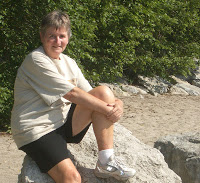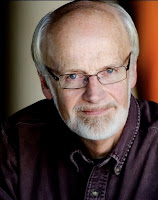Stay with me for a minute while I wander through the hallways of old church buildings where I worked and where my choirs sang. The choral year began with me making selections of anthems for each holiday and theme sometimes in consultation with the liturgical calendar although I did not work in a liturgical church. Still, making music in a modified gothic building made me conscious of the long-lasting traditions of church music and of the many reforms that music had undergone. And of course, I liked music from many ages and in many styles.
I learned that the liturgical calendar held some oddities. The year began soon after Thanksgiving, five or six weeks before New Year’s Day. Advent announced the coming Christmas celebration, but thanks to the endless playing of holiday tunes in malls, over airwaves, and at concerts, by the time we got to Christmas we had reached our tolerance. I thought it might be nice to save a three-wise-men song for Epiphany, but what meaning would it have for nice Kansans played out with such music? Christmas was over, the gifts open, and the trees trashed or stored for next year. I realized that for our church I’d have to modify my approach. So Epiphany drifted by without much notice, Epiphany that in western tradition (Roman Catholic and its reforming offspring) pointed to the baptism of Jesus and that in eastern tradition (Orthodox Catholic of various national identities) to the arrival of the Zoroastrian Magicians from the East.
Now stay with me a little longer while I tell you a bit about my religious experience. The Christianity I received came delivered intact. It honored the biblical revelation as being sufficient for all times and assumed that with slight differences in perception the good news was sufficient for all cultures. Yet the form of its understanding relied on an accommodation of an 18 century philosopher! It was systemized in a simple way and taught to children and adults as the truth. I was happy with it, studied the bible, sang the songs, taught its tenets, prayed to the God it taught in the ways it prescribed. That Christianity allowed for individualism—after all it was a 19th century accommodation of the Gospel and the Enlightenment. It assumed that the incarnation of God in Jesus Christ had occurred, that biblical epiphanies, such as the appearance of the risen Lord to the apostle Paul, were true. It assumed that the need for further revelation was over, the age of miracles concluded, and the truth already delivered!
It made sense to me. Its personal emphasis was one of belief as in the confession of faith represented by the public question, “Do you believe that Jesus is the Christ?” and by the time I came along, its existential element was caught up in the idea that you “take Jesus Christ to be your personal savior.” Assumed also was the idea that this belief would make you a better person and that you should pray and go to church regularly.
The system was a reform of the orthodox doctrines of ecclestical authority based on an apostolate, and so forth. It was also a democratic accommodation of church structure and authority that fit in with the American ethos very well. Special gifts of the spirit were generally relegated to the ancient past as no longer needed for faith in the modern age.
The very rational religion seemed official; I found it sufficient for a very rational me. Happily I went on my religious way and into religious work at which I excelled. One could say I had a very rational calling into the ministry of a very rational church.
But non-rational elements kept creeping into my systematic bliss, and some of them seemed blissful to me. Reading Christian theology written by English Dons, I wondered at their preoccupation with classical gods and myths. Why did their inclusion seem so important to them? I didn’t understand, yet in my own mind I heard and treasured the drums and chants of Native American tribes, their stories and folkways, and eventually I came to appreciate how they illuminated my Christian understandings. I spent a lot of time planning religious education events, and affective elements from other religious expressions made way into my designs. I directed choirs in the very rational church and one guest asked if ours was a charismatic church. “Why do you ask?” the senior minister queried. “Well, because of your choir director.” When he told me, I wondered if I seemed to her to be lifted into some kind of charismatic ecstasy. Well, I did get to dance in church.
Please, please stay with me. We’re getting to the story. At a personal level there were those homosexual stories I’ve told you about, experiences that for me seemed to hold so much godly content, that seemed so centrally to define who I was, experiences that revealed personal truths that ran counter to democratic voting-block opinions. My personal truths promised to interrupt the church’s general flow of power and tolerance thus leaving me quite vulnerable. The truth of my personal faith belied the tentative acceptance of gays by the rather liberal faith community I in which worked. Perhaps I was looking for some personal epiphany to redefine who I was in relationship with the now-seeming insufficiently enlightened Christianity I had long accepted. I started separating myself from the religion of my forebears. It wasn’t that I quit being Christian or turned my back on God, but that my Christianity became more personalized, luring me out of the institutional door, so to speak. Now it wasn’t as if homosexuality didn’t exist in the church. That seems obvious enough to our age. But the homosexuality was closeted and often frantic. It was as if everything about religion worked for homosexuals except the institutional rejection of them. That’s got to be a terrifying dilemma. One gay minister had an epiphany and organized what became the Metropolitan Community Church, a special home for LGBTs that eventually began to seek inclusion in the National and World Council of Churches only to be rejected. (Oh well, what’s new?)
I slipped quietly out the back door of the modified gothic buildings and made my way to the big city. I attended the MCC until I got over some of the initial trauma of my leaving both marriage and ministry. Then I began being irked by openly gay clergy. What was that?
Finally I had an epiphany. Mine was not a view of God sitting on the high throne of Heaven, of the resurrected Christ appealing to me in his very human body, but rather, a vision of the homophobia that resided deep within my heart, my body, my mind. It was the homophobia that lurked behind all the nice things I had thought about gay folk and about my gay self. The content of this epiphany—really an emotion-filled insight into myself—was that the culture had kept the upper hand even deep inside me. Slowly through this new vision of myself, I was converting into a self-loving gay human. My homophobia that got focused on a gay church and gay clergy really was my self-hatred that had to be removed, that had to be loved out of me by the God of love that I had long professed, and that had to be loved out of me by the open and costly process of loving men and being loved by them.
Well … I don’t quite know how to move this story to a close, but I do love you people who listen to my stories. I do love you people who so beautifully love gay me. For you are the embodiment of my great religious epiphany.
Denver, 2012
About the Author
Phillip Hoyle lives in Denver and spends his time writing, painting, giving massages, and socializing. His massage practice funds his other activities that keep him busy with groups of writers and artists, and folk with pains. Following thirty-two years in church work, he now focuses on creating beauty and ministering to the clients in his practice. He volunteers at The Center leading “Telling Your Story.”
He also blogs at artandmorebyphilhoyle.blogspot.com



